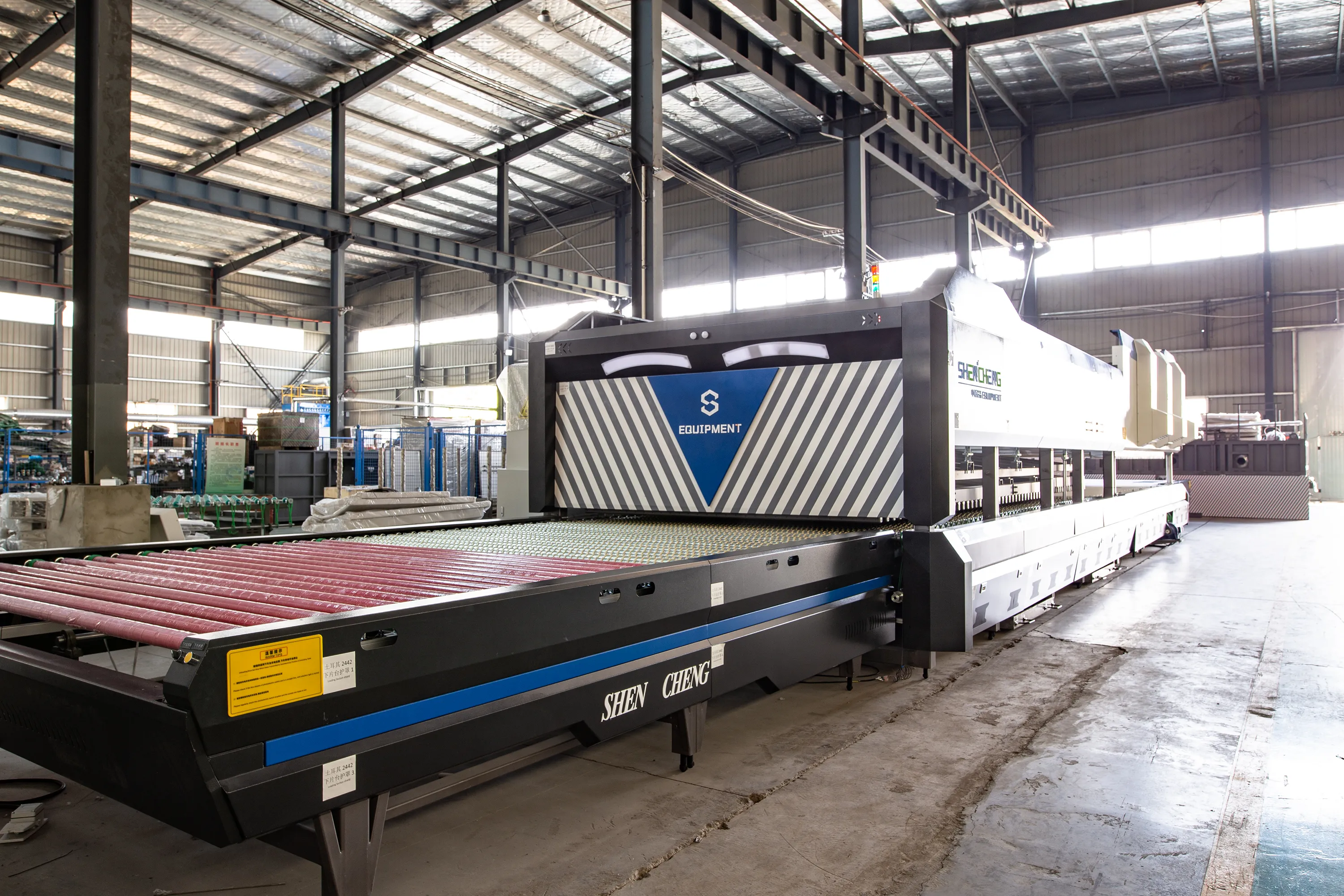Glass tempering furnaces are essential equipment in the glass processing industry, designed to increase the strength and safety of glass by heat treatment. These furnaces heat glass to a high temperature and then rapidly cool it, resulting in a strong, thermally stressed, and safer glass product. The process not only enhances the load-bearing capacity of the glass but also makes it less likely to cause injury when broken due to its granular fracture pattern.

Modern glass tempering furnaces come with a range of features that ensure high-quality output and energy efficiency. Some of the key specifications and features include:
Glass Thickness Range: Most furnaces can handle a wide range of glass thicknesses, typically from 3.8mm to 12mm.
Maximum Glass Size: The furnaces are designed to accommodate large sheets of glass, with sizes varying from model to model, but commonly up to 2440×4200 mm.
Heating Systems: State-of-the-art heating systems with precise control mechanisms ensure uniform heating of the glass.
Forced Convection: Some models use forced convection systems for efficient heating of all types of glass, including Low-E coated glass.
Energy Efficiency: Innovative technologies like pass-through quench and heat recovery systems significantly reduce power consumption.
Control Systems: Advanced control systems with recipe saving and automatic cooling nozzle adjustment ensure consistent quality and ease of operation.
Maintenance Features: Easy access for maintenance and features like emergency cooling systems are included in some models.
Tempered glass finds applications in various industries due to its strength and safety characteristics. It is widely used in:
Construction: For glass railings, folding glass systems, doors, shower cabins, partitions, and furniture glasses.
Automotive: For rear and side glasses.
...
For more detailed information on the specifications and features of glass tempering furnaces, please click here: https://www.shencglass.com/en/a/news/specifications-and-features-of-glass-tempering-furnace.html